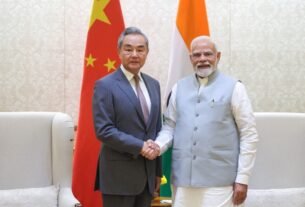NEW YORK, July 30 — In a powerful and unified voice, some of the Arab world’s most influential countries — including Qatar, Saudi Arabia, and Egypt — have stepped forward alongside a coalition of global partners to call for an end to Hamas rule in Gaza. Their message is clear: the pathway to peace must include the disarmament of Hamas and the transition of governance in Gaza to the Palestinian Authority, backed by international cooperation and support.
This landmark agreement emerged from a United Nations conference focused on revitalizing the two-state solution — a vision of Israel and a sovereign Palestinian state existing side-by-side. The statement was endorsed by 17 countries, the European Union, and the Arab League, reflecting a significant diplomatic consensus.
“Hamas must end its rule in Gaza and hand over its weapons to the Palestinian Authority,” the declaration stated. This move is seen as a cornerstone for achieving long-term peace, rebuilding Gaza, and empowering the Palestinian people with legitimate, peaceful governance.
The call comes as the humanitarian toll of the Gaza conflict grows unbearably heavy. After nearly two years of relentless war, tens of thousands of lives have been lost, infrastructure has been decimated, and the dream of statehood for Palestinians seems to slip further away.
The conference also marked a rare moment of agreement among traditionally opposing sides. France, co-chairing the event with Saudi Arabia, described the declaration as “historic and unprecedented.” French Foreign Minister Jean-Noel Barrot emphasized, “For the first time, Arab nations and their Middle Eastern allies have jointly condemned Hamas, called for disarmament, and expressed a vision for normalization with Israel.”
Western countries including Britain, Canada, and France co-signed the statement and proposed international peacekeeping forces to help stabilize Gaza after the conflict ends. Notably, neither Israel nor its ally, the United States, took part in the discussions.
On the second day of the conference, the United Kingdom made headlines by signaling that it could recognize a Palestinian state as early as September — but only if Israel agrees to a ceasefire and allows humanitarian aid into Gaza.
France has echoed this stance, with President Emmanuel Macron expected to formalize France’s recognition of Palestine at the upcoming UN General Assembly session in September.
Yet, urgency remains. After 21 months of war, expansion of Israeli settlements, and continued suffering on both sides, the future of a geographically viable Palestinian state is hanging by a thread. The UN’s own Secretary-General Antonio Guterres warned that the two-state solution is now “farther than ever before.”
Despite the uncertainty, hope still flickers. A group of 15 Western nations reiterated their commitment to a two-state solution on Tuesday. Among them, nine countries — including Australia, Canada, and Portugal — stated they are now considering recognizing Palestine.
This global shift signals a growing realization: peace cannot wait. The cost of delay is counted not just in political stalemates, but in human lives.




